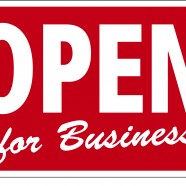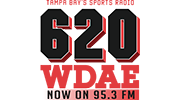Bankroll Foundation
From the moment the Patriots finished off the Seahawks in Superbowl XLIX, the gambling countdown began anew for another season of betting professional football. It’s no surprise, the NFL is King Kong when it comes to sports gambling in North America generating the most betting handle and fan interest from recreational bettors. Spring and summer are the perfect time to prepare for the new season, giving us months to identify the sleepers, darkhorses, futures, and win totals that are all worth our investing dollar. However before spending all of that time trying to isolate winners, developing a gameplan for establishing your bankroll needs to take precedence. Whether you’re a $5 or $5,000 bettor, optimal money management is essential to long term gambling success. Here are a few tips for that novices should keep in mind before they handicap a single game.
Stay within your means
I know this sounds simple but you’d be surprised how many recreational bettors ask me how much they can expect to make betting sports. That’s actually the wrong question to be asking. Instead, take a long look in the mirror and ask yourself how much you can afford to lose in this hobby without it impacting your day to day. Sports gambling should be viewed by the majority of the population as a form of recreation, mentioned in the same breath breadth as other forms of entertainment like movies or shows. By taking this pragmatic approach you’re better equipped to keep perspective and properly allocate the kind of funds you feel comfortable risking during the season. Winning is great but the reality of this business is that most bettors will lose over the long haul especially in their first few seasons. The amount you dedicate to gambling should be a dollar amount that won’t stress you out meaning if you win it’s an added bonus over the money pit your golf game has become.
Set aside that fixed amount and stick to it
I tell new sports bettors all the time to set aside an actual amount of money at the start of the season and stick to it. If it’s $500, $1,000, $5,000, or $100,000 recreational bettors need to understand their threshold for loss. It becomes too easy to keep adding to your mounting losses chasing bad money with good thinking that next heater is right around the corner. Rather than continuously pumping money into your offshore accounts or paying bookies adjust your bet amounts accordingly. There’s no shame in betting smaller amounts if your primary goal this fall is to have as much action as possible. Even if you have $10,000 set aside for the fall there’s nothing wrong betting $25 or $50 to keep things light on the 40 games you intend to have action on each week. There’s no worse feeling in betting sports than taking money ear marked for other life pursuits to finance gambling losses. Create a gambling budget and stick to it…it’s called being an adult.
Adhere to betting principles
Above I mentioned there’s no shame in keeping wager amounts smaller than what optimal money management suggests. It then goes without saying that betting above a certain threshold is beyond reckless. Nothing in this business is iron clad when it comes to certain denominations but realize there’s an inherent streakiness in sports betting. Even the best bettors in the world go on cold spells and strong money management keeps you in the game to endure rough patches (NOTE: even the biggest mushes find heaters where they just can’t miss too, it’s the other side of the coin). I’m a big believer that sticking to bet sizes of 1, 1.5, and 2 positions for beginners eliminates massive swings. You will see professionals who step out from time to time betting much larger when opportunity driven by situation or information presents itself. When it comes to the 1, 1.5, and 2 that I reference for me personally it correlates to a 2.5%, 4%, and 5% wager. Using a $1,000 beginning bankroll this would mean bets are $25, $40, and $50 bucks with the majority obviously coming in the $25 denomination. For those looking to read more on the specifics of identifying their edge there are a few helpful links that will explain the Kelly Criterion; a formula used to determine the optimal size of a series of bets.
Kelly Criterion applied to markets
Also here’s an interesting read from Pinnacle Sports that might help you identify what kind of bettor you are entitled Predictive Skills: Are you a Fox or a Hedgehog?












